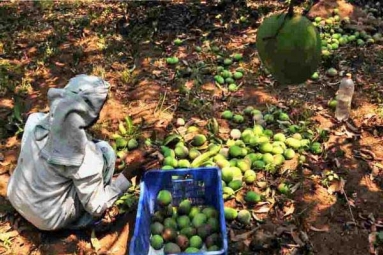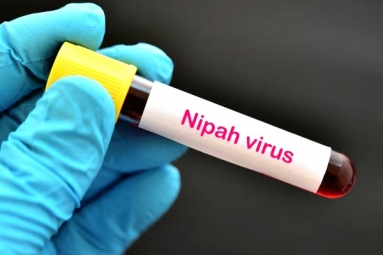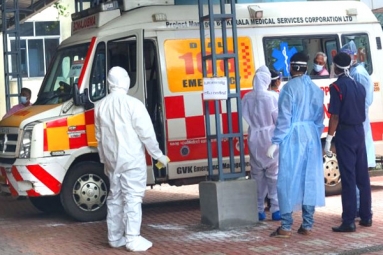
(Image source from: Indiatoday.in)
On Sunday, September 15, state Health Minister Veena George announced that a 24-year-old man died of Nipah virus infection at a private hospital in Malappuram, Kerala. This is the second death due to the virus in Kerala this year. Kerala, one of the few states in India where Nipah virus cases have been reported, first encountered the virus in Calicut on May 19, 2018. Previous Nipah virus outbreaks in the state occurred in 2018 and 2021, resulting in two deaths in Calicut district. Nipah virus, a serious zoonotic pathogen, is a renewed concern. It is important to understand transmission, prevention measures and treatment options. This virus is known for its high mortality rate and knowledge of effective strategies to manage and prevent its spread is essential. Here's everything you need to know about the virus, its transmission, prevention and treatment.
The Nipah virus (NiV) is a zoonotic virus that is transmitted from animals to humans using the flying fox (fox bat, also known as flying fox) as a natural host. It can also infect pigs and cause human illness ranging from mild symptoms to encephalitis (brain swelling) and death. Nipah was first identified in a village in Malaysia between 1998 and 1999 and can be transmitted through contaminated food and personal contact. According to the World Health Organization (WHO), the initial Nipah virus outbreaks that affected Malaysia and Singapore were primarily associated with transmission to humans through direct contact with sick pigs or their infected tissues. In subsequent outbreaks in Bangladesh and India, the virus was transmitted to infected bats primarily through the consumption of fruits such as infected raw date juice. Person-to-person transmission has been documented, particularly among caregivers and close contacts of patients.
Nipah virus infection in humans can range from asymptomatic to severe respiratory illness and fatal encephalitis. Initial symptoms include fever, headache, muscle pain, vomiting and sore throat. As the disease progresses, dizziness, lightheadedness, and neurological symptoms suggestive of encephalitis may occur. In severe cases, patients may experience seizures and go into a coma within 28 to 48 hours. Difficulty breathing and unusual pneumonia may occur. The incubation period of a Nipah virus infection is usually 4 to 14 days, but in some cases it can last up to 45 days. The mortality rate of this infection is estimated to be between 45 and 75% depending on prevalence and medical resources. According to the World Health Organization, there is no specific treatment or vaccination for Nipah virus infection. Precautionary measures include minimizing exposure to infected pigs and bats in areas where the virus is endemic and avoiding consumption of raw date juice, which can be contaminated by bats that carry the virus.



















